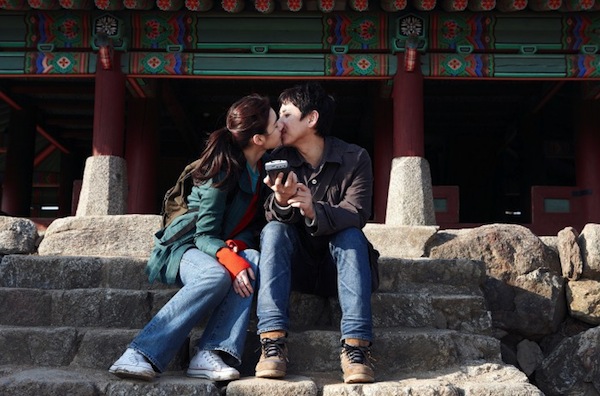You have no items in your cart. Want to get some nice things?
Go shoppingHong Sang-soo’s incidental, but charming tale of an illicit affair and a young woman adrift in modern Seoul
Shot through with a deceptive simplicity that belies its deeper concerns, Nobody’s Daughter Haewon is the tale of a young woman somewhat adrift in modern Seoul. Disconnection is an oft-revisited theme in the work of Korean auteur, Hong Sang-soo, for whom this is an inaugural UK theatrical release in addition to another of his films, Our Sunhi, at the London Film Festival.
Haewon (Jeong Eun-Chae) is a charming protagonist, aspiring actress and struggling to find a comfortable place for herself. Her emotional bewilderment and Hong’s whimsical stylings are typified by the film’s odd opening. On her way to meet up with her mother, Haewon bumps into actress Jane Birkin (playing herself) and they share a moment. It gives a curious and humorous voice to Haewon’s desire for a closer relationship with her mother who we soon learn is about to jet off to live in Canada. These non-existent relationships with her parents have obviously taken their toll on Haewon, as do the tensions with her classmates and an on-off mutually destructive relationship with her teacher, film director Seongjun (Lee Seon-gyun).
In amongst the clumsy moments played for laughs, and the illicit couple’s attempts to avoid the unwanted attentions of their peers – restaurants, parks, long walks in the forest – an incisive portrait is painted of two people utterly trapped and unable to extricate themselves. There is a lot more to Nobody’s Daughter Haewon than its somewhat amateurish production values might suggest; it is just that this is more a case of watching the ripples on the surface of a pool than diving in to see what is causing them. Hong’s insistence on observing his subjects from a distance, and his often wayward crash zooms actually serve to heighten the sense that we are intruding on a private conversation which we can only interpret at its most basic, superficial level.
Other characters come off less well than Haewon, with Seongjun in particular proving a thankless role for much of the runtime. Largely, though, the film works thanks to its enchanting lead. There are moments where her performance verges on wooden, but these often serve to accentuate her emotional lack of direction. Coupled with the director’s style this makes for a very watchable film, if not one that is likely to linger long in the memory. And this despite the fact that there is clearly much more going on behind Haewon’s cool eyes, even if she (nor we) are able to articulate or even quite comprehend it.
About Ben Nicholson
A compulsive cinephile, Ben fell in love with film through repeated viewings of Michael Jackson being transformed into a werewolf behind the scenes of John Landis' seminal video for Thriller. This passion has manifested itself in his consumption of movies and the enjoyment derived from reading, discussion and writing about cinema which can all be found on New Urbanite. His favourite films include The Third Man, In The Mood For Love, Badlands, 3 Iron, Casablanca, Ran, and Last Year in Marienbad - to name but a few.





